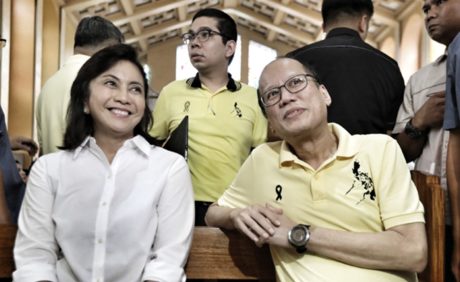
The campaign for the 2019 mid-term elections in the Philippines is about to kick off (if it hasn’t yet). It seems, however, that no political camp has really given much thought to what it is exactly they will be proposing to the Filipino voter. At the very least there’d be some form of vision being pitched — a “better” Philippines in one flavour or another. The vision proposed, say, by the incumbent administration of Philippine President Rodrigo Duterte is a drug-free and truly independent Philippines.
The Opposition led by the Liberal Party (a.k.a. the Yellowtards), as we understand what they continue to be screeching about, espouses a return to the status quo. This status quo is guided by the “freedom” narrative that lorded over the Philippines’ political chatter for three decades with thinking that orbits the Western liberal platitudes of North America and Western Europe. This stubborn pitching of a tradition is what continues to serve as the pillar of the Opposition rhetoric. Rather than evolve to challenge a popular political brand, they continue flogging what is essentially a dead horse.
Note that whilst the Duterte brand is, by most objective measures, popular, its quality and effectiveness is open to wide debate. The trouble with the Yellowtards is that their key strategy is to compete on popularity rather than on quality. They battle Duterte at the lowest common denominator. There is really no mystery around why they prefer this approach. Yellowtardism traces its roots to a “popular” revolt in 1986 and a reboot of this in 2001 when a legitimately-elected president was ousted in a similarly Manila-centred “people power” circus. In both instances, power was seized by the Yellowtards on the basis of a slanted display of mere popularity. To this day, they continue to pin their hopes for a return to power on “heroes” and “martyrs” around whom they could rally the next such circus. This is the core reason for why they now consistently fail.
To the credit of non-Yellowtard commentators and pundits — even those squarely within the so-called “Die-hard Duterte Supporter” (DDS) cliques — there exists frank debate over the pros and cons of how Duterte is running things. Many commentators and observers even risk ostracisation by daring to be objectively critical of Duterte and his most revered social media “thought leaders”. The advantage of non-Yellowtard commentators is that they are not weighed down by the obsolete romanticism of “people power” rhetoric and neither are they loyal to a choir of Yellowtard heroes, martyrs, and saints. The Opposition will serve themselves best by keeping an ear extended to the chatter within non-Yellowtard cicles, because it is there where the most carefully-thought-out crticial, and data-driven reflection on how the Duterte administration is running things is being had. More importantly, it is within these communities of real thinkers where the roadmap ahead is being debated.
Any advertising professional will tell you that it is very difficult, impossible in fact, to run an effective campaign around an unclear objective. To battle a popular incumbent requires brains. As such, the Opposition needs to take stock of its current brains trust. Its stakeholders need to ask: Who among the Yellowtards are smart enough to think outside the square? The most difficult intellectual exercise, after all, is coming up with a different approach to solving a problem — specially one that came about because of flawed thinking. What the Yellowtards are essentially doing is using the same flawed thinking to solve a problem that was created because of that very same flawed thinking.
Trying to beat Duterte will require a lot of intelligence, creativity, and originality. Duterte is, after all, a politician who came out of nowhere and dismantled Imperial Manila’s monopoly over the Philippines’ national politics. Simply throwing a tantrum over lost power will not change the fortunes of the Philippines’ Opposition groups. What they need is to up their game and be more competitive and less beholden to relics of their discredited narrative.

No comments:
Post a Comment